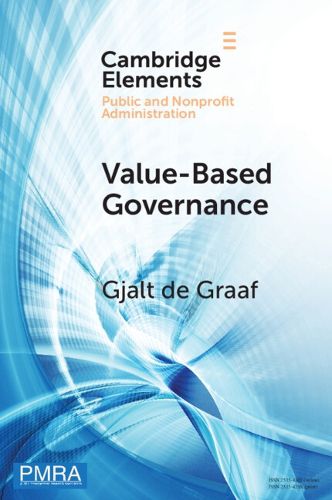Readings Newsletter
Become a Readings Member to make your shopping experience even easier.
Sign in or sign up for free!
You’re not far away from qualifying for FREE standard shipping within Australia
You’ve qualified for FREE standard shipping within Australia
The cart is loading…






Public governance is inherently normative, so it is important to study the values of public governance - particularly in the present-day context, where, given increasingly differentiated Western public governance, many different values come into play and new value conflicts arise. In this Element, a value-based governance (VBG) perspective is presented. In this perspective, values take center stage as the guiding concept in the theory and practice of public administration and are used as a heuristic to understand and analyze public governance. One section focuses on the advantages and disadvantages of coping strategies used by actors and institutions when dealing with value conflicts. In the final section, the author returns to the practice of public governance: the VBG paradigm entails public governance with normative reasoning. Value-based governance is about bringing the value rationality back in and recognizing intrinsic values. This title is also available as Open Access on Cambridge Core.
$9.00 standard shipping within Australia
FREE standard shipping within Australia for orders over $100.00
Express & International shipping calculated at checkout
Stock availability can be subject to change without notice. We recommend calling the shop or contacting our online team to check availability of low stock items. Please see our Shopping Online page for more details.
Public governance is inherently normative, so it is important to study the values of public governance - particularly in the present-day context, where, given increasingly differentiated Western public governance, many different values come into play and new value conflicts arise. In this Element, a value-based governance (VBG) perspective is presented. In this perspective, values take center stage as the guiding concept in the theory and practice of public administration and are used as a heuristic to understand and analyze public governance. One section focuses on the advantages and disadvantages of coping strategies used by actors and institutions when dealing with value conflicts. In the final section, the author returns to the practice of public governance: the VBG paradigm entails public governance with normative reasoning. Value-based governance is about bringing the value rationality back in and recognizing intrinsic values. This title is also available as Open Access on Cambridge Core.